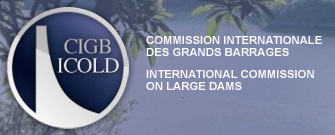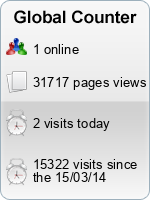EMPOWERMENT OF TRADITIONAL SUBAK INSTITUTION FOR DEVELOPMENTG OF SUSTAINABLE IRRIGATED AGRICULTURE
By: Sahid Susanto Faculty of Agricultural Technology Gadjah Mada University
A B S T R A C T
Problem of availability of limited water for irrigated agriculture at Bali Island is being bound in many facets. In searching for ways to answer the problem, an intensive village-settled study was conducted for three years. Some representative traditional subak institutions were applied as samples for the study. Since the subak institution has multi-faced dimensions of economic, social, culture, environment, and politics, empowerment of the institution is strongly needed. The study proved that the subak institution should be empowered which can be directed to be as various agents of agricultural production. Those are: (i) farmer institution as a producer agent, (ii) farmer institution as an agent to access to resource markets, (iii) farmer institution as an agent to access to labor markets, (iv) farmer institution as an agent for developing indigenous ideas. Rearrangement strategy for policy action from the angle of political economy has to considered by the government.
Key words: limited water availability, sustainable irrigated agriculture, empowerment of traditional subak institution
Full version clik here
A Study of the Subak as an Indigenous Cultural, Social and Technological System to Establish A Culturally Based Integrated Water Resources Management
By: Sahid Susanto (Team leader and editor)
This book is published based on the research results of three years research projects started from the fiscal year (1995/1996) sponsored by The Toyota Foundation with the Grant Number of 95-I-023.
The research was conducted in Bali Province in three years of data gathering and village-settled study. This book contents three volumes. Volume 1 discus on review of related studies of cultural, Social and technological Balinese Subak system, Accumulation facts and figures of cultural, social and technological of Balenese Subak system. Discusion in Volume 2 is focused on clarification results of basic characteristics in a historical perspective. In Volume 3, discusion is oriented on developing strategies in sustaining indigenous knowledge and culture of Subak system, Emplowerment of irrigated agriculture of Subak system, Paradigm of water resources management for sustainable irrigated agriculture. ![]()
Pidato Dies UGM 2015
Naskah Lengkap UNIVERSITAS GADJAH MADA MENGABDI: MEMBANGUN PENGUATAN SINERGI DAN INOVASI UNTUK MEWUJUDKAN KEDAULATAN PANGAN Oleh: Sahid Susanto
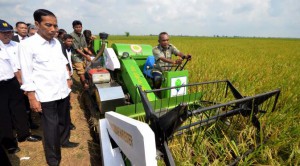 Sesuai dengan thema Dies Natalis UGM kali ini dengan bidang Agro sebagai lokomotif daya saing bangsa dan kesejahteraan rakyat, maka judul diatas dipilih sebagai fokus perhatian dalam naskah pidato Dies UGM 2015.
Sesuai dengan thema Dies Natalis UGM kali ini dengan bidang Agro sebagai lokomotif daya saing bangsa dan kesejahteraan rakyat, maka judul diatas dipilih sebagai fokus perhatian dalam naskah pidato Dies UGM 2015.
Sudah banyak diskusi tentang kedaulatan pangan dilakukan dan telah menghasilkan banyak dokumen. Pada kesempatan kali ini, rasanya masih sangat relevan apabila diskusi tentang kedaulatan pangan kita angkat lagi karena ada situasi sosial-ekonomi-politik yang memberikan momentum dan semakin kuatnya keinginan untuk mewujudkannya. Kedaulatan pangan sebagai bagian kedaulatan berbangsa dan bernegara harus terus menerus disuarakan. Jangan sampai semakin redup dan menjadi hilang dari ingatan kita.![]()
LEASON LEARNED: PENGEMBANGAN BLENDED LEARNING WORKSHOP KEPEMIMPINAN
Oleh: Sahid Susanto Magister Manajemen Pendidikan Tinggi Sekolah Pascasarjana, Universitas Gadjah Mada
ABSTRACT
Pembelajaran dan pengajaran pada institusi pendidikan tinggi secara online berkembang sangat cepat akhir-2 ini. Salah satu turunan tipenya adalah blended learning. Dalam paper ini dibahas tentang hasil pengembangan blended learning untuk program training leadership bagi perwakilan pimpinan di institusi pendidikan tinggi di Indonesia, baik di tingkat universitas maupun fakultas. Program pelatihan kepemimpinan terdiri dari empat core: a) supportive leadership, b) external collaboration, c) quality assurance dam d) financial management. Program diawali dengan tatap muka untuk setiap core dengan peserta sekitar 50 sampai 60 orang.![]()

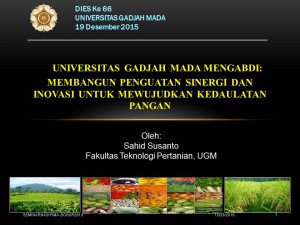
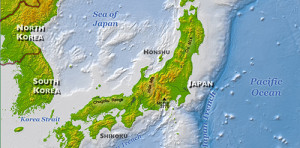 Characteristics of Nature and Society in Japan River Public Administration in Japan Comprehensive Flood Management in Japan Recent Flood Disaster for Urban Area International Cooperation based on Japan’s Experience
Characteristics of Nature and Society in Japan River Public Administration in Japan Comprehensive Flood Management in Japan Recent Flood Disaster for Urban Area International Cooperation based on Japan’s Experience



